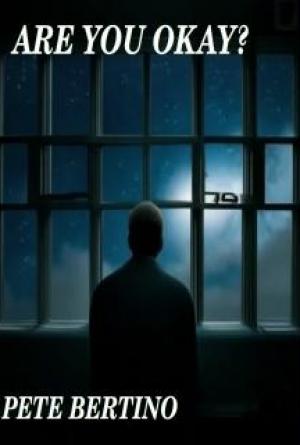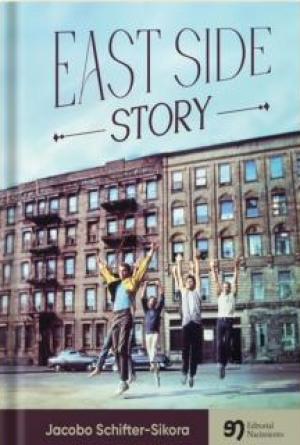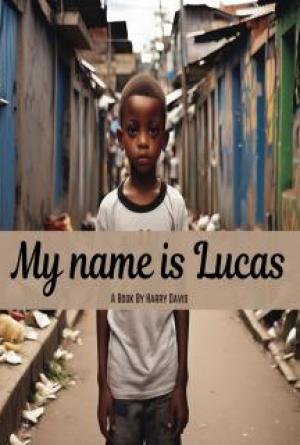ACT II.
SETTING—Same as Act I.
(Miss Fitzsimmons sits at her desk arranging some papers. Laughter and talking is heard, followed by the entrance of the automobile party of six persons.)
Mrs. Morrison, a stout, elderly lady.
May Morrison, her daughter, affected young lady.
Betty Bennet, May’s friend.
Charley Chadwick, May’s beau, something of a “smarty,” but a “good sort.”
Mr. and Mrs. Brown, an affectionate couple.
May Morrison (ecstatically). “Oh, what a perfectly darling place! The veritable little old red schoolhouse.”
(Miss Fitzsimmons sniffs audibly as she looks her over disdainfully.)
Charley Chadwick (taking her hand and skipping with her down the aisle, sings):
“School-days, school-days
Dear old Golden Rule days.
Readin’ and writin’ and ’rithmetic,
Taught to the tune of the hick’ry stick.
You were my queen in calico,
I was your bashful, bare-foot beau,
And you wrote on my slate, ‘I love you, Joe,’
When we were a couple of kids.”
Mrs. Morrison (advances to the teacher’s desk). “Good morning. Miss—ah?”
Teacher (shortly). “Fitzsimmons.”
Mrs. M. “Ah yes, of course. You are the teacher, I presume?” (Miss Fitzsimmons nods.) “Awfully nice of you to extend your hospitality to us in this way.”
Mr. Brown (joins in). “Yes, indeed, its great of you to help us out.”
Charley (facetiously). “Oh, no, Brown; this is a case of our being ‘taken in.’”
(The girls giggle.)
Miss Fitzsimmons (after a contemptuous glance in his direction, responds quite graciously to the others). “I’m sure I’m glad we could be of service to you, and the children are pleased at the prospect of helping the poor family, which your generosity has made possible.”
Mr. Brown. “Oh, don’t mention it.”
Miss Fitzsimmons. “And you’ll find all the lunches on those seats” (pointing to them). “I hope you will enjoy them.” (Turns to her papers. The others murmur their thanks and proceed to remove their wraps, all but Mrs. Brown, who draws her fur more closely about her throat.)
Mr. Brown. “Cold, dearie?”
Mrs. B. (plaintively). “Simply freezing, honey.”
Charley (aside to May). “Buzz! Buzz!”
Mr. Brown (bustling about). “Where is the radiator, anyhow?”
Miss Fitzsimmons. “The stove’s up there at the other end of the room.”
Charley. “Oh, I say, Brown, let’s turn our attention to the baskets now and hug the stove afterwards. I’m completely caved in.”
(Mr. and Mrs. Brown gracefully agree to this, and the opening of the baskets, bags and kettles begins.)
(The door in view of the audience opens on a crack and Curiosity’s hooded head appears unnoticed by the occupants of the schoolroom, and one after another the curious faces of the children appear.)
Betty (gleefully). “Oh! Oh! a cup of cranberry jelly.” (Takes it out.)
May. “And here are two simply luscious-looking cakes with chocolate on top.”
Charley. “Horray! pumpkin pie.”
Mrs. Brown. “Oh, lovey, look! A great big, juicy cruller.” (Holds it up.)
Mr. Brown. “We’ll eat it together over by the stove, pet.”
Charley. “Going to eat the whole of it?”
May. “Oh, Charley, you funny funny thing!”
(They group themselves about and arrange the viands on napkins found in the baskets.)
(Just then Charley espies the faces at the door, which promptly bob out of sight, except Curiosity’s.)
Charley. “Hello there, sis! How’s all the pigs up at your place?”
Curiosity. “Oh, pretty well, thank you. How’s all your folks?”
(Betty claps her hands.) “Good! good!” (The others laugh, Charley included.)
Charley. “Oh, I say! What’s your name, anyhow?”
Curiosity. “Same as father’s.”
Charley. “Yes, I know that, but what’s father’s now?”
Curiosity. “Same’s mine.”
Charley. “Well, but what do they say when they call you to breakfast.”
Curiosity. “They don’t never call me. I allers git there first.”
Teacher. “Why, Curiosity, I thought you had gone home.”
Curiosity. “No’m. We thought we’d wait and take our baskets home after they’re through with ’em.”
Mrs. Morrison. “Oh, let them stay, Miss—Persimmons.”
Teacher. “Fitzsimmons.”
Mrs. Morrison. “Oh, yes, of course, Fitzsimmons. Let them all come in; there’s plenty here for all of us and them, too.”
May. “Oh, yes, do. It’ll be a perfect circus.”
(Charley throws wide the door.) “Come in, come in, friends, and help us eat up your lunches.”
(The children, after much whispering and “you go first,” troop in bashfully, giggling and nudging one another, and the eating commences, Mrs. Morrison presiding over the distribution of the lunches.)
Charley (munching a sandwich). “My, but this chicken sandwich is prime. Who brought it, anyway?”
Dennis (shyly). “I did.”
Charley. “Your own chickens?”
Dennis. “Yes, sir.”
Charley. “I should think you’d hate to chop the heads off the poor chickens.”
Dennis. “Oh, we get around that all right.”
Charley. “How, now?”
Dennis. “Oh, we chop the chickens off.”
(The grown-ups all laugh delightedly.)
Curiosity (intently regarding Miss May’s enjoyment of the generous portions of lunch at her place and Charley’s attentions toward her), asks Mr. Brown, “Is he going to marry her?” (indicating them by a nod of her head).
Mr. Brown. “I believe so.”
Curiosity. “And buy her everything?”
Mr. Brown. “Yes.”
Curiosity. “Clo’s and dinners and ice-cream and things?”
Mr. Brown. “I presume so.”
Curiosity. “Well, that man’s got lots of courage, ain’t he?”
(Mr. and Mrs. Brown laugh amusedly, and Charley turns from a conversation with May to ask), “Hello! now what’s the joke?”
Etta E. “Oh, its her” (motions to Curiosity), “she’s et so much of my tomato ketshup she’s gettin’ sawcy.”
Curiosity. “Well, you et that big apple out of my basket.”
Etta. “Well, here, plant the seeds and you can have a whole orchard.” (Holds them out to her provokingly.)
Charley (to Annabel). “Well, sister, did you make this pie?”
Annabel. “No, sir. Ma did, though, and she’ll write off how if you want me to ask her to.”
Charley. “Now that’s kind of you. Pray do. How’d you like a good receipt for catching rabbits?”
Annabel (staring). “Wh-y! I—I’d like to have it.”
Charley. “Well, you crouch down behind a thick stone wall and make a noise like a turnip.”
Annabel. “O—h!” (thinks it over).
Mr. Brown (to Mrs. B.) “Isn’t this blackberry jam delicious, sweetness?” (Gives her a spoonful.) “But you’d know it reminds me of a painful blunder I made once when visiting the country, which I never want to repeat.”
Mrs. Brown. “Dear me! Did you mistake a stranger for an acquaintance, honey?”
Mr. Brown. “No, not exactly that, but I mistook a bumblebee for a blackberry.”
Mrs. Brown. “Oh, my!”
Annabel (to Charley). “I can tell you a better way to catch ’em.”
Charley. “Catch what?”
Annabel. “Why, them rabbits.”
Charley. “How now?”
Annabel. “You go and sit quietly in a bed of cabbages and look natural.”
(The laugh is on Charley.)
May (to Bessie Bolitsky). “Now I expect you little girls know a perfectly awful lot, don’t you? Can you tell me how many ribs you have?”
Bessie (squirming and giggling). “I don’t know, ma’am. I’m so awful ticklish I never could count ’em.”
Mr. Brown (to Fanny). “I hear we pass your house on our way to the turnpike. I’d like to stop and see your father about buying some of these apples (eating one). Think he is home?”
Fanny. “Oh, yes-sir. He’s worrikin’ down at the end of the back lot where the pigs is. You’ll know father ’cause he’s got a hat on.” (A burst of laughter.)
Fanny (indignantly). “Well, I don’t see what you’re laughin’ at. The hired man’s got on a cap.”
Mrs. Morrison. “I suppose you children know lots about history. Now who can tell me the name of the first man?”
Henry. “George Washington.”
Mrs. M. “Why do you think George Washington was the first man?”
Henry. “Because he was first in war, first in peace, and first in the hearts of his countrymen.”
Joshua. “No, Henry. You’re way off. George Washington couldn’t a’ been the first man ’cause my history-book says he married a widow; so there must a’ been another man way ahead of him.”
(Laughter from grown-ups.)
May. “You surely are well informed about Washington. How about Lincoln?”
Geraldine. “We’s just writing compositions on him to hand in next Monday. I’ve got mine here if you’l like to hear it.”
May. “I’d simply love to.”
Betty. “Oh, yes, do read it.”
Geraldine (takes paper out of book and reads). “Abraham Lincoln was born in Kentucky at a very early age. His father moved the family to Ohio, floating down the Mississippi. If he had not been killed by a murderer he might be living to-day. He was an intelligent man and could easily have been President of New York City.”
(The grown-ups try to hide their smiles.)
May. “Perfectly remarkable.”
Mrs. Morrison (to Isaac). “Have another sandwich, my boy, or a pickle or something.”
Isaac. “No’m, thanks; I’m full.”
Mrs. M. “But surely you are not finished yet. Why here is some delicious pie.”
Isaac. “Yes’m, I’m saving my neck for that.”
Mrs. Brown (to Annabel). “And this little girl has stopped eating, too. Do take another cake.”
Annabel (with a sigh, as she takes the proffered cake). “Well, I’ve quit swallerin’, but I can chaw yet.”
Mrs. M. (rising and going to the teacher’s desk, where Miss Fitzsimmons is lunching while she marks and arranges papers). “Well, my dear Miss Fitzgibbons—”
Teacher. “Fitzsimmons.”
Mrs. M. “Oh, of course, Fitzsimmons. My dear Miss Fitzsimmons, this has been a most enjoyable and unique occasion to us.”
Teacher. “I’m glad, I’m sure.”
(Mr. and Mrs. Brown join them.)
Mr. B. “We’ll remember it as one of the events of our lives, won’t we, Rosebud?”
Mrs. B. “Indeed we shall. It makes one wish she were a little schoolgirl once again.”
Mr. B. (fondly aside). “And I a little schoolboy to carry her books.”
Mrs. B. “You dear, foolish boy.”
Charley. “But, oh, say, Mrs. Morrison, before we go let’s have a game of something or other. What say, everybody?”
May and Betty. “Oh, yes, let’s.”
Children. “Oh let’s do.”
Charley. “What shall it be?”
Children cry. “Ring-around-a-rosey,” “Puss-in-the-corner” and “London Bridge.”
Charley. “Well, let’s see; that’s three to choose from. How many say Ring-around-a-rosey, hold up your hands.”
(A few of the children’s hands are raised.)
Charley. “Now Puss-in-the-corner. How many am I bid for Puss-in-the-corner?”
(A few more hands are raised.)
Charley. “Now for London Bridge. Going—going—gone.”
(The other children and all of the grown-ups hands are raised except the teacher’s and Mrs. Morrison’s, who stand aside laughing.)
Charley. “London Bridge has it. You come on, too, Mamma Morrison and Miss Teacher. Everybody forward. Who’ll be London Bridge? You do, Betty and May, and come on, the rest of you. Line up behind me and we’ll storm the bridge.”
(The two young ladies join hands, and the others, headed by Charley—Mrs. Morrison and the teacher protestingly joining, coaxed by the children—pass under the arched hands, singing:
“London Bridge is falling down,
Falling down, falling down.
London Bridge is falling down,
My fair lady.”
May and Betty drop their hands around the person going under the arch as the word “lady” is sung.)







